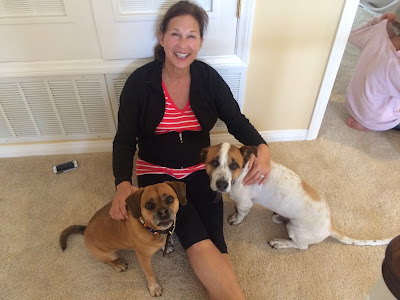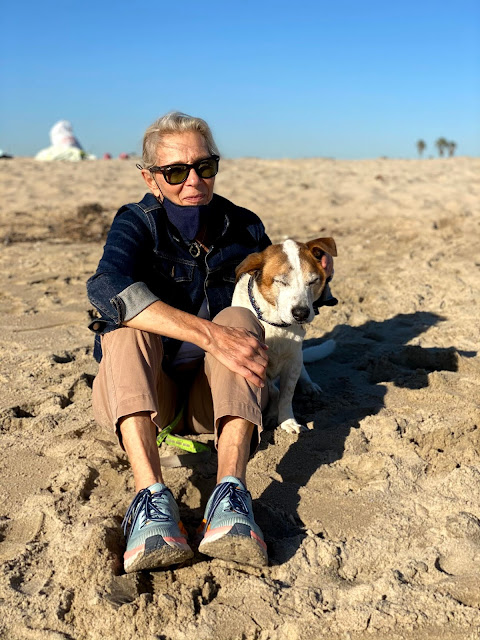I first moved to Los Angeles, California from NYC ten years ago because I loved all that the city and state had to offer. And for the first 8 years, I loved nearly every minute of it. I planted roots, started a family and a business, and became an active member of a community. But in the last two years, I have begun to question and regret the decision to move here. The city, in its current state and trajectory, is a mess.
While the decline in quality of life is surely multi-causal, one thing is certain: the current leadership, imbued with a naïve and noxious ideology, is burning through everything it touches like the fabled 'universal acid'. This ideology, well intentioned as most are, is woefully misguided, and juvenile in its conception. And this ideology is incarnated in our District Attorney Gascon, whose policies and messaging are at the root of the ubiquitous decay.
Since DA Gascon came into office, Los Angeles has deteriorated at an unimaginable rate. Streets are full of garbage, tents, human feces, needles, and open-air drug markets. Once thriving Los Angeles areas now look like an apocalyptic horror film, and every police officer questioned about this decay responds the same way: “our hands are tied by the DA”.
A brief glance at DA Gascon's website, https://georgegascon.org/, reveals his priorities and ideology–and both are not what's needed. The first priority on his website is accountability for police. Yes police do need to be accountable for their actions, but this ought not be the first priority on our city's to-do list. Making it a priority, and doing so in the way that he has done, discourages the exact people we should be thanking for their courageous service. It villainizes those who risk their lives to protect ours.
But rather than advocating for a vision of what government can be, and what an improved society might look like, the website and his messaging do the opposite, casting aspersions on the police. DA Gascon doesn’t acknowledge the risks they take going into situations of unknown risk, and thus incredible danger. Instead, he runs and is elected on a campaign that demonizes them. This messaging turns away talent. It dissuades enrollment and matriculation by the exact people we need to attract. And it thus enables and encourages crime. Is it a wonder that things have taken such a sharp turn for the worse?
The website states that "As Los Angeles District Attorney, I will make our neighborhoods safer".
Well, all evidence to the contrary. Allowing encampments on streets with drugs and needles is dangerous and foolish policy. Permitting petty crimes to go unpunished sets the example that crime is okay. Setting minors free with gun violations does not honor their youth, it motivates older criminals to use them as pawns, and sets violent offenders free with no penalty, no dissuasion from further offenses, and no meaningful punishment for current ones. It ignores all the true and valid reasons for punishment that are necessary to create a functioning civilization. And with the DA's stance against enhancements, multiple offenses are no longer evidence of a pattern worth disrupting.
Of course, punishment can go too far. Laws and their enforcement are imperfect, requiring meaningful checks and balances. But the pendulum has swung way too far at this point and we must get control of it soon or the damages could take decades to reverse.
Cities with dense populations cannot operate on laissez faire principles or libertarian ideals. Large, dense populations require more rules, and more importantly, strong enforcement of those rules, to function. Laws without consequences harm the society; when crime goes unpunished, the population loses respect for the law, and that is how civilizations are derailed. As an animal reigned in can be controlled, but once the reigns are lost, it is difficult to corral.
As priorities go, optics matter, and so do statistics. The evidence of the city's decline is everywhere and does not require further exposition. With respect to police reform, the problem requires some quantification to observe or understand. The basic stats are this: in the entire county of more than ten million inhabitants, yearly statistics indicate that each year, about 250 people are killed by police. Of this total, some are tragic missteps or abuses, and others are justified shootings. Of the 80k police officers in Los Angeles, approximately eighty are arrested per year for misconduct. This is 0.1%. These are hardly the statistics of a pernicious epidemic worth focusing on as the number one priority, to the exclusion of other more pressing issues. Further, by solving for their brutality, and focusing on limiting their power to enforce the laws using force and force multipliers, the policies enacted will cause the opposite problem: that police will be killed in increasing number on the job, and that all crime will rise as the police are handcuffed by anti-police-brutality policy.
Politicians like DA Gascon pretend that they are compassionate by targeting a problem that is statistically minor, but politically charged, to garner political power. The strategy is effective, but the costs are substantial, as we are all witnesses. The residents of Los Angeles are suffering from his misguided policies and ineptitude. Those that are homeless are suffering far worse fates under these policies as well. Living with impunity on the streets provides them no hope, and no impetus to make positive strides toward improving their lives. By enabling them to live in squalor, they feel ashamed, and left behind, and devoid of dreams. That is the irony of these so-called compassionate policies; they assume that homeless people are hopeless people, rather than seeing them as strong human beings capable of change.
We need new leadership. We need it now.









